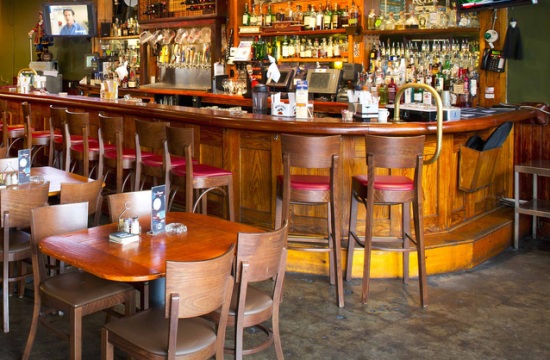Britain’s bars and pubs are officially struggling, with multiple commercial properties being forced to close every week. As Movehut revealed in a previous article, an average of 12 commercial property public houses are forced to discontinue trading in the United Kingdom every week, as high costs and the recession combine to make conditions for the leisure industry more and more difficult on a virtually daily basis.

Yet it appears that some commercial property chains, such as Wetherspoons and Harvester for example, are bucking the trend and in fact open new commercial properties on a relatively regular basis. In that case, why are so many pubs being forced to close or sell out to large brewery chains? Surely if one pub is successful, it stands to reason that others in a town or city should be enjoying at least a small portion of their good fortune?
Unfortunately not. Large breweries, Belhaven in Scotland being a prime example, manage to monopolise the market rather successfully and ensure that their commercial properties are more attractive to clientele than independently owned alternatives.
Independent commercial property pubs have a major advantage over brewery owned premises in that the landlord is able to choose the supplier from which the alcohol and soft drinks are purchased from. This allows for a greater range of real ales and lagers, as well as whiskies and spirits. However, this can be an expensive option, as by not allying with one specific brewery, the independent landlord or owner is unable to take advantage of discounts or lowered costs when mass purchasing, meaning that in order to cover costs they must raise the price for customers.
Compared to a brewery owned pub, which can pass on savings to their customers, the independent public house commercial property is less likely to attract a large crowd of regulars due to the current economic situation, where household disposable income ensures that the majority of the British public are constantly seeking bargains and cheaper alternatives.
Additionally, chain pubs and brewery owned pubs can compensate for losses in an individual commercial property by balancing any losses against the overall successes of their other commercial properties.  Even if their whole portfolio is making significant losses, assets can be liquidated – in other words, they can sell a portion of their commercial properties – while still remaining in business. If the landlord or owner of an independent commercial property public house wishes to sell his business, he is then effectively unemployed and so must either buy another pub or change career paths entirely.
Even if their whole portfolio is making significant losses, assets can be liquidated – in other words, they can sell a portion of their commercial properties – while still remaining in business. If the landlord or owner of an independent commercial property public house wishes to sell his business, he is then effectively unemployed and so must either buy another pub or change career paths entirely.
However, one of the biggest challenges facing the leisure industry as a whole is the incessant increasing of taxes on alcoholic drinks. On top of Value Added Tax (VAT) which fluctuates at national standards, publicans must also pay Excise Duty to HMRC depending on the product sold. This year alone, alcohol duty rose by 2 per cent, meaning that public house commercial properties had to raise their costs accordingly, putting yet more people off popping down to their local for a pint.
Quite simply, public house commercial properties are being priced out of business, but while large chains can generally afford to cope with this, the small individual commercial properties are bearing the brunt of taxation and the recession and being forced to shut down.
It is no wonder, then, that many people are choosing to purchase alcohol from off-licensed commercial property premises to consume in their own homes, as they tend to get more for their money.
Majestic Wine PLC’s annual report, released this week, showed that despite the tough economic conditions, the group continued to go from strength to strength, even opening new commercial properties across the country.
Their commercial property portfolio grew as their sales did, with 16 newly acquired stores having opened in the past financial year. This brought the total number of Majestic Wine commercial properties in the UK to 181, with the Board of Directors citing that they hope of eventually trading in 330 British locations.
Phil Wrigley, chairman of Majestic Wine PLC, said; “I am able to report that Majestic has delivered another excellent set of results.
“Profit before tax for the 53 weeks ending on April 2nd 2012 grew 14.5 per cent to £23.2 million. Total group sales were up 8.9 per cent to £280.3 million with like for like UK sales increasing 2.6 per cent.
“Whilst we recognise that the trading environment is likely to continue to be difficult, we are well placed to deal with the challenges and opportunities ahead.
“In the first ten weeks of the new financial year we have already achieved UK like for like sales growth of 0.6 per cent.”
It appears, then, that the British public are still choosing to buy alcohol, but from retail commercial properties as opposed to leisure commercial properties. Independent public houses no longer have the ability, or the finances, to compete with chain leisure companies, who themselves are showing signs of struggling to attract business as the unrelenting alcohol taxes continue to take their toll.
Hopefully, a solution to the economic crisis will be found soon, thus removing the need for towering tax increases year upon year, or unfortunately the independent public house commercial properties that once played such a vital role in British communities all over the country will soon be a thing of the past.
Do you believe that the leisure industry, in particular public house commercial properties, will be able to survive the double dip recession relatively unscathed? Or do you think that too much competition within the industry itself will see supermarkets and retail commercial properties triumph in the alcohol sales battle?
Previous Post
O2 Customers Suffer Second Day of Disruption